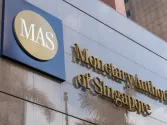Supply Chain Risk – Not a Bank’s Problem?
By Henry BalaniSupply chain financing is an attractive line of business that is not without its inherent risks. The banking industry understands this but may not necessarily be aware of or may not have the necessary controls to identify all of the red flags.
Recent regulators’ reports such as the UK FCA (Financial Conduct Authority) have highlighted process deficiencies within UK banking systems in regards to preventing trade based money laundering. Key points have highlighted the identification of dual use goods whenever possible as well as proper staff training.
Given the often tight turnaround times and that banks have only paper documentation to reference any shipment by, the process improvements that are called upon are difficult to implement. Like Anti-Money Laundering Compliance, a risk based approach coupled with technology can be undertaken to mitigate the risks.
When speaking of trade based money laundering, there are certain red flags that should justify additional scrutiny. If a shipment had needless involvement of third party jurisdictions or involvement of jurisdictions with a lax regulatory framework such as those on FATF’s (Financial Action Task Force) deficient jurisdictions list, it could warrant additional scrutiny.
In addition to the red flags highlighted by the recent UK FCA report on Trade Based Money Laundering, the Asia Pacific Group (APG, a regional affiliate of the FATF) released several case studies on Trade Based Money Laundering in 2012. The APG report highlighted several cases where banks were defrauded or exploited by criminal elements through supply chain financing.
Since most shipments are high in dollar value, the risk for a potential shipment to be seized or funds frozen has serious implications for the bank and damages relations between the client and the bank if something did go wrong. Banks should take note of this and implement effective staff training to identify the highest risk shipments and to implement additional scrutiny around them.
Beyond the risk of money laundering, sanctions risks and the need to identify dual use goods also finds itself as important factors within the compliance process. For example, foreign subsidiaries of Iranian industries that resides in neighbouring countries like Tajikistan facilitating shipments containing goods that can be used in both auto parts or in nuclear power plants will catch regulatory scrutiny.
However, most tools that exist on the market today does not complement the trade finance checking process as they are time consuming to use, relies on manual inputs and often does not contain enough data points. Take the example of Matef Star, this vessel does not appear on any sanctions list as it’s Manager, Operator and Registered Owner is based in the United Arab Emirates.
However, the group beneficial owner is Bahregan Marine Services Co, which is based in Iran. Since the entire Iranian shipping industry is sanctioned under the latest US Iran Freedom Proliferation Act of 2012, a shipment on this vessel is going to be at risk of sanctions.
The nature of bulk ocean export often means if the cargo became frozen due to being placed on a sanctioned vessel, it could imply the receiving factory has nothing to manufacture and is a breakdown of the client’s supply chain. This is especially true now that many manufacturers rely on lean manufacturing practices, which means that if the bank allowed the shipment to be processed but the vessel was rejected from the receiving port or frozen, then the reputational damage and strain will be on the bank to client relationship.
The onus may not be on the bank but if something was to go wrong the bank will be dragged into a burdensome process. Not mentioning reputational damage, the bank needs to constantly update clients who are eager to retrieve their cargo, all the while ensuring that the next shipment they process isn’t going to face the same issues.
Thus, although the responsibility may not entirely be on the bank, the bank must understand that the risks faced will largely and negatively impact them if effective measures aren’t implemented.























 Advertise
Advertise








